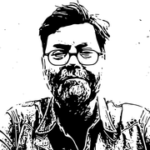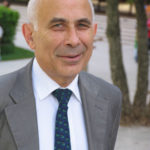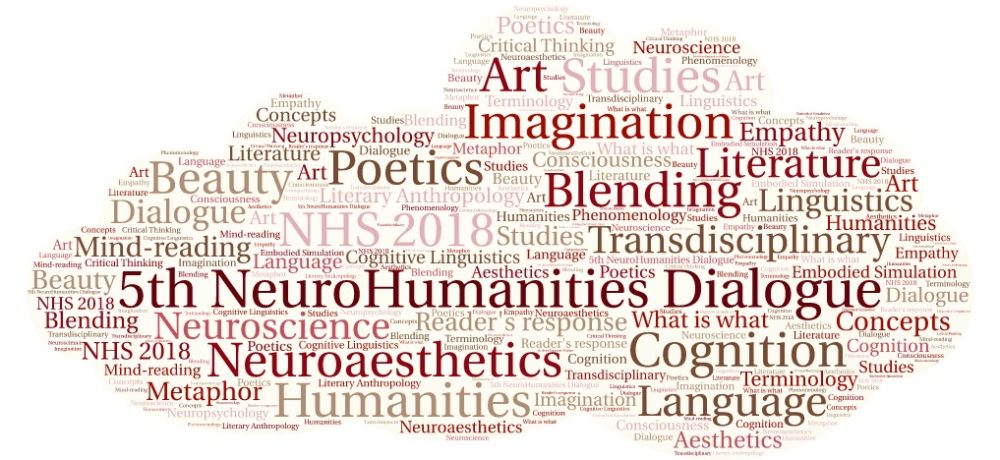 Helmut Leder is Professor of Cognitive Psychology and Head of the Department of Basic Psychological Research and Research Methods at the University of Vienna, since 2004. He is Head of the Research Focus “Perceptual Aesthetics”, and Head of the Cognitive Sciences Research Platform. His main fields of research are aesthetics, psychology of the arts, design – and face perception. He holds a PhD from the University of Fribourg. He was a visiting researcher at the University of Stirling, ATR Japan, USC and UCSD, at the Languages of Emotion-Cluster, FU Berlin, and Queens College, NYU. He is the author or co-author of many scholarly publications (Google Scholar Citations).
Helmut Leder is Professor of Cognitive Psychology and Head of the Department of Basic Psychological Research and Research Methods at the University of Vienna, since 2004. He is Head of the Research Focus “Perceptual Aesthetics”, and Head of the Cognitive Sciences Research Platform. His main fields of research are aesthetics, psychology of the arts, design – and face perception. He holds a PhD from the University of Fribourg. He was a visiting researcher at the University of Stirling, ATR Japan, USC and UCSD, at the Languages of Emotion-Cluster, FU Berlin, and Queens College, NYU. He is the author or co-author of many scholarly publications (Google Scholar Citations).
For his research in empirical aesthetics he was awarded the Berlyne Award for career contributions to the psychology of aesthetics of the American Psychological Association (APA), and the Baumgarten Award of the International Association of Empirical Aesthetics (IAEA). His research was sponsored by several grants in the field of empirical aesthetics, face processing and with industrial partners.
 Arthur M. Jacobs is full professor and founding director of the Dahlem Institute for Neuroimaging of Emotion (D.I.N.E.) at Freie Universität Berlin. He obtained his Ph.D. in experimental psychology from the Sorbonnen in 1986 and held various positions at the Sorbonne, the Cognitive Neuroscience Institute/Marseille, and the universities of Marburg, Eichstätt-Ingolstadt, and Berlin. At FU Berlin, he directed the ‚Emotions and Language’ area in the interdisciplinary research cluster ‘Languages of Emotion’ and teaches Experimental and Neurocognitive Psychology. Author and co-author of over 250 scientific publications, in 2011 he also published the book Gehirn und Gedicht: Wie wir unsere Wirklichkeiten konstruieren (Brain & Poetry: How we construct our realities; München: Carl Hanser Verlag) together with the Austrian poet Raoul Schrott.
Arthur M. Jacobs is full professor and founding director of the Dahlem Institute for Neuroimaging of Emotion (D.I.N.E.) at Freie Universität Berlin. He obtained his Ph.D. in experimental psychology from the Sorbonnen in 1986 and held various positions at the Sorbonne, the Cognitive Neuroscience Institute/Marseille, and the universities of Marburg, Eichstätt-Ingolstadt, and Berlin. At FU Berlin, he directed the ‚Emotions and Language’ area in the interdisciplinary research cluster ‘Languages of Emotion’ and teaches Experimental and Neurocognitive Psychology. Author and co-author of over 250 scientific publications, in 2011 he also published the book Gehirn und Gedicht: Wie wir unsere Wirklichkeiten konstruieren (Brain & Poetry: How we construct our realities; München: Carl Hanser Verlag) together with the Austrian poet Raoul Schrott.
 Alan Richardson is specialized in British Romantic literature and culture, literature and empire, poetics, and early children’s literature. His current research involves Romantic theories and representations of subjectivity, embodied agency, and language in relation to 18th- and early 19th-century neuroscientific speculation and experimentation, and the prospects in general for work at the intersection of literary studies and the cognitive sciences.
Alan Richardson is specialized in British Romantic literature and culture, literature and empire, poetics, and early children’s literature. His current research involves Romantic theories and representations of subjectivity, embodied agency, and language in relation to 18th- and early 19th-century neuroscientific speculation and experimentation, and the prospects in general for work at the intersection of literary studies and the cognitive sciences.
Prof. Richardson is the author of over fifty articles and essays in academic journals and book collections, in addition to his numerous books and editions. He has edited special issues of the journals Poetics Today and European Romantic Review and serves on the advisory boards of a number of academic journals and websites, including Studies in Romanticism, Nineteenth Century Literature, Romanticism, The Wordsworth Circle, European Romantic Review, Romantic Circles, and Romantic Chronology. Major honors and awards include fellowships from the Whiting Foundation, the National Endowment for the Humanities, and the John Simon Guggenheim Foundation, the International Conference in Romanticism Book Prize for 1994, the Keats-Shelley Association Distinguished Scholar Award for 2008, and the Alpha Sigma Nu National Jesuit Book Award in the Humanities for 2011.
 Mark Turner is Institute Professor and Professor of Cognitive Science at Case Western Reserve University. He is the founding director of the Cognitive Science Network. Many of his papers are available on his author page on the Cognitive Science Network.
Mark Turner is Institute Professor and Professor of Cognitive Science at Case Western Reserve University. He is the founding director of the Cognitive Science Network. Many of his papers are available on his author page on the Cognitive Science Network.
He is Founding Director of the Cognitive Science Network; Founding President of the Myrifield Institute for Cognition and the Arts; Fellow of the Institute for Advanced Study, the Center for Advanced Study in the Behavioral Sciences, the National Humanities Center, the John Simon Guggenheim Memorial Foundation, the Institute of Advanced Study at Durham University, the New England Institute for Cognitive Science and Evolutionary Psychology, the National Endowment for the Humanities, and the Institute for the Science of Origins; Extraordinary Member of the Humanwissenschaftliches Zentrum der Ludwig-Maximilians-Universität; External Research Professor of the Krasnow Institute for Advanced Study. For 2011-2012, he is a fellow of the Centre for Advanced Study at the Norwegian Academy of Science and Letters.
 Semir Zeki was Professor of Neurobiology at University College London until 2008 and currently holds the Professorship of Neuroesthetics there. He has specialized in studying the organization of the visual brain and more recently has also been studying the brain systems that are engaged when a visual stimulus triggers an affective state, as with beauty, desire and love. He has written several books, the most recent of which is Splendors and Miseries of the Brain.
Semir Zeki was Professor of Neurobiology at University College London until 2008 and currently holds the Professorship of Neuroesthetics there. He has specialized in studying the organization of the visual brain and more recently has also been studying the brain systems that are engaged when a visual stimulus triggers an affective state, as with beauty, desire and love. He has written several books, the most recent of which is Splendors and Miseries of the Brain.
/
